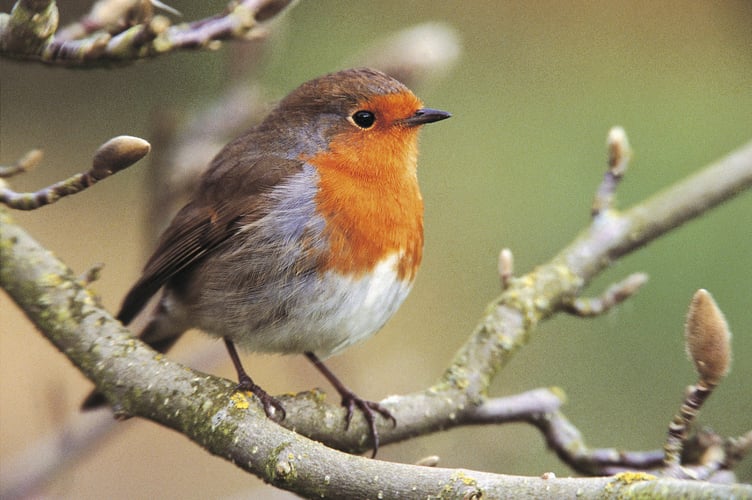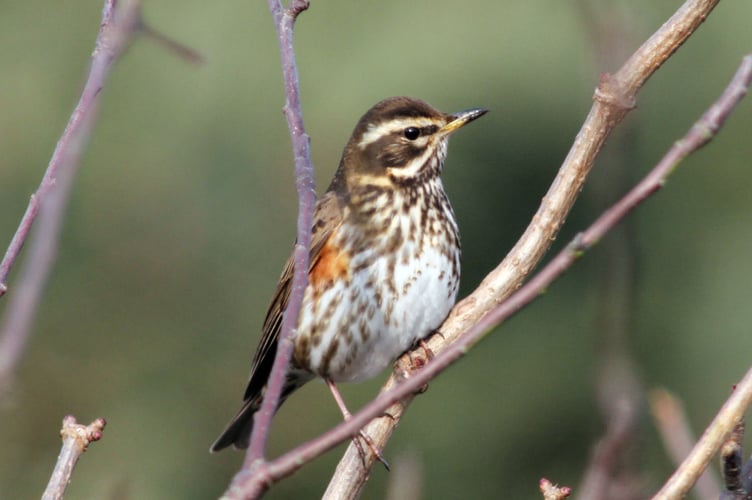
Redwings are back! One of winter’s delights is to see groups of redwings during their winter holidays in the UK, usually searching for earthworms, or perhaps gorging on berries.
It was fascinating to spot these distinctive birds this winter on broad grassy areas alongside footpaths near my Goldsworth Park home. I was struck by how they ignored human passers-by as they busily explored the turf for wriggly feasts!
The redwing is a bird in the thrush family, dark brown above and white below, with a black-streaked breast. It is red on the flanks and underwings, and has a distinctive face with a white eyebrow stripe and dark brown cheeks.
Redwings are winter visitors to the UK. According to the RSPB, some redwings come from Iceland to spend the winter in Scotland and Ireland. Others come from Russia and Scandinavia to over-winter in southern England, or can continue further south in Europe.
The numbers of redwings in any year depends on food availability in their northern breeding territories during the spring and summer.
In autumn, redwings gather along the Scandinavian coast at dusk before launching off on a 800km (500-mile) overnight flight across the North Sea to the UK. In rough weather, the RSPB says, many may unfortunately crash into the waves and drown.
If you spot a group of these attractive birds, take a moment to observe them while they’re here because, when spring arrives, they will leave us to return to their northern breeding grounds.
There is something else I have noticed lately and it has set me wondering: Why do birds sing in winter?
Have you noticed the birdsong recently? I’ve been struck a few times recently by the volume and variety of the birdsong, even just walking to the shops. Robins, in particular, were singing away loudly.
It’s not yet spring, when male songbirds (such as robins, blackbirds and thrushes) sing to attract a mate and to establish a breeding territory by warning away male intruders. Birds also vocalise danger signals and alert others to a source of food.
But why do they sing so loudly during the UK winter? I tried to find out. I discovered that although there is some research into the phenomenon, there are as yet no definitive answers.
However, it seems male robins will sing in all months except in mid-summer when they are moulting and need to hide away to recover.
Songbirds start singing in spring in response to longer hours of daylight, to establish their territories and to attract mates.
It’s possible that in January and February they are already singing in response to the increased light after the winter solstice. Perhaps they are more vocal when they’re glad to see bright weather an overcast period!
Does it trigger something in the songbirds’ brains that the time is coming to start thinking about spring territories and wooing?
In addition to the songbirds, we can also hear the familiar “cawing” of crows and other corvids, which they do for another reason: to keep their flocks together.
Birdsong always fulfils a purpose; otherwise a bird wouldn’t expend the effort in creating it. For humans, it lifts the spirit and fosters a strong feeling of wellbeing.
Do listen out – birdsong will do you good!




